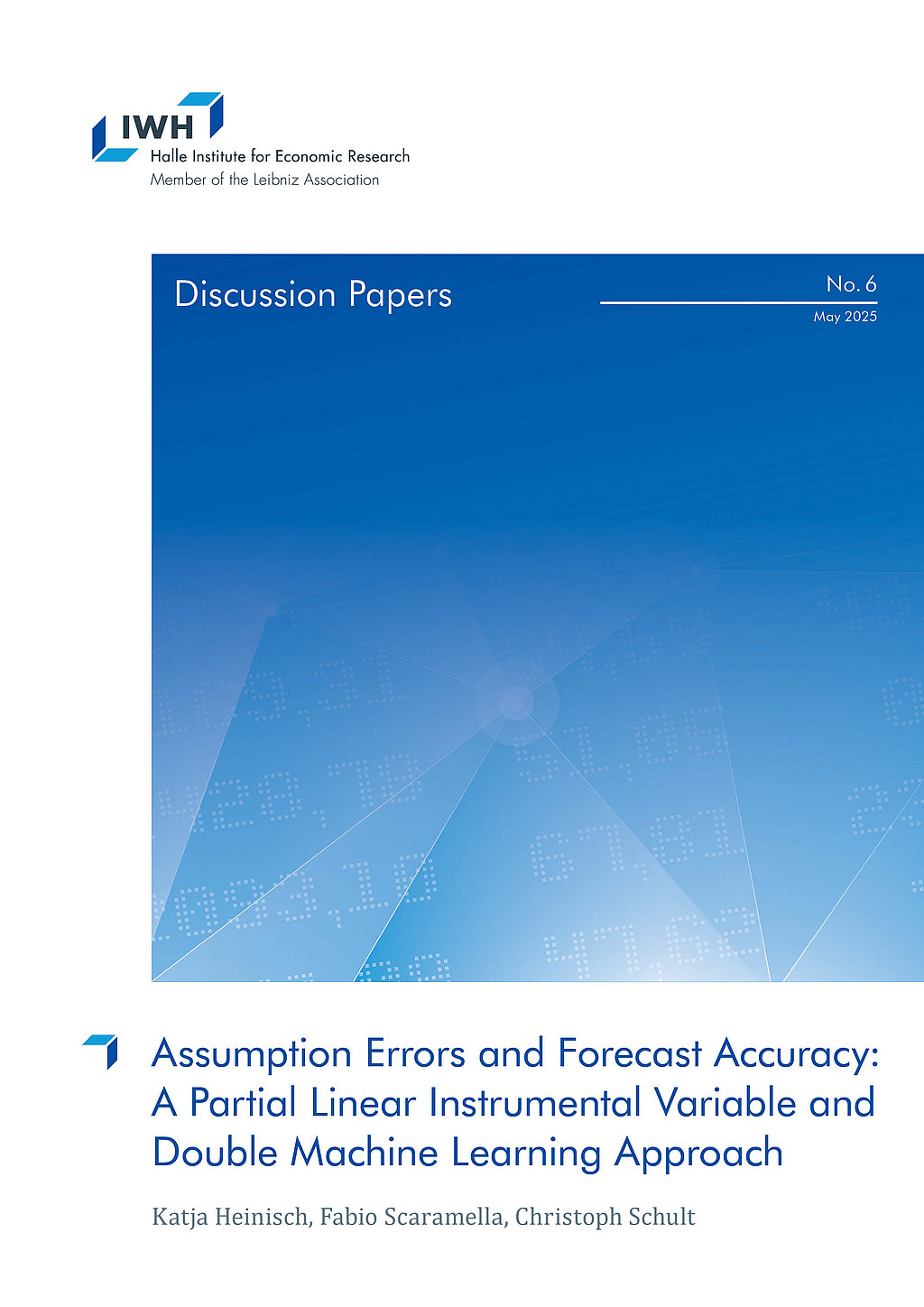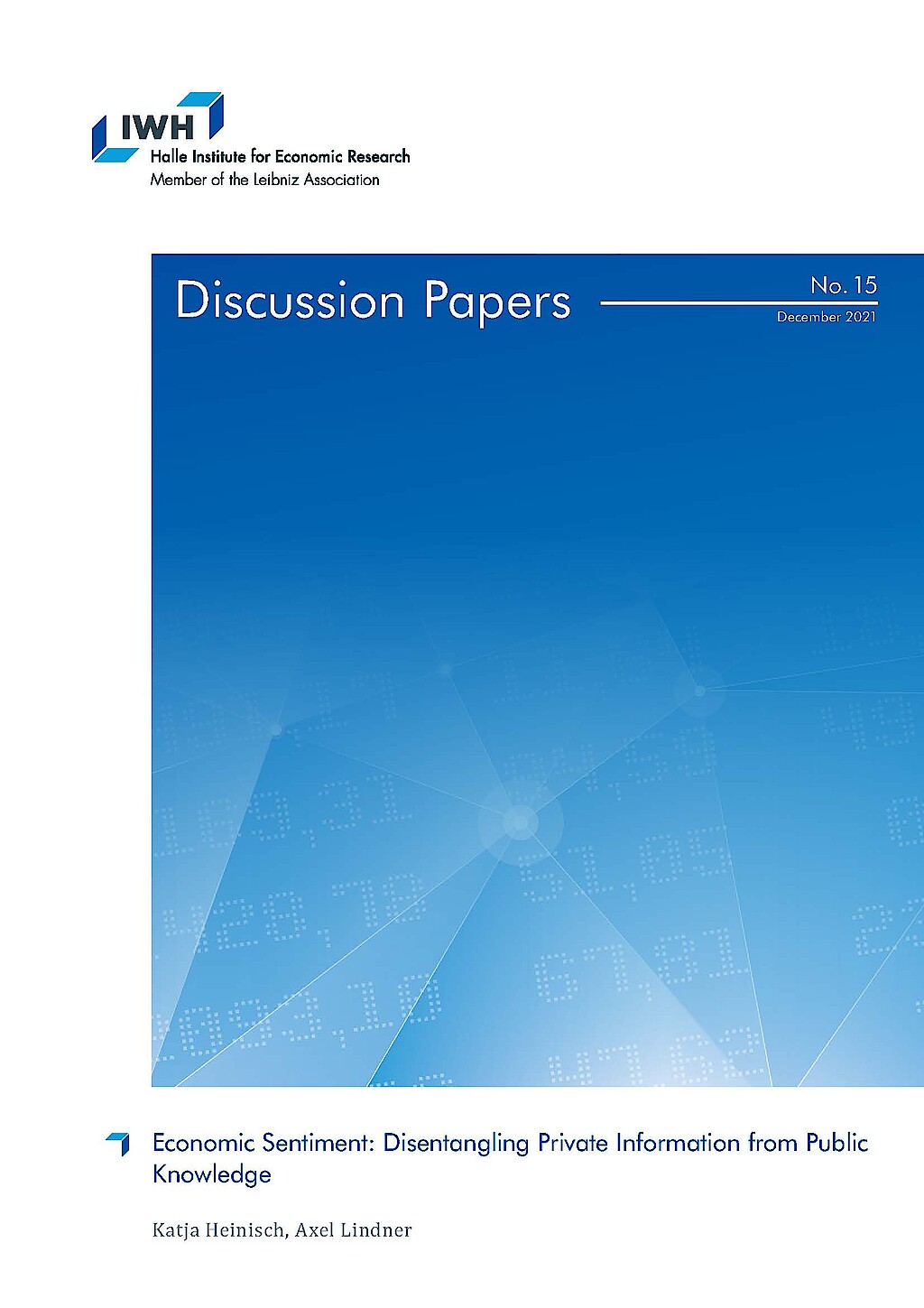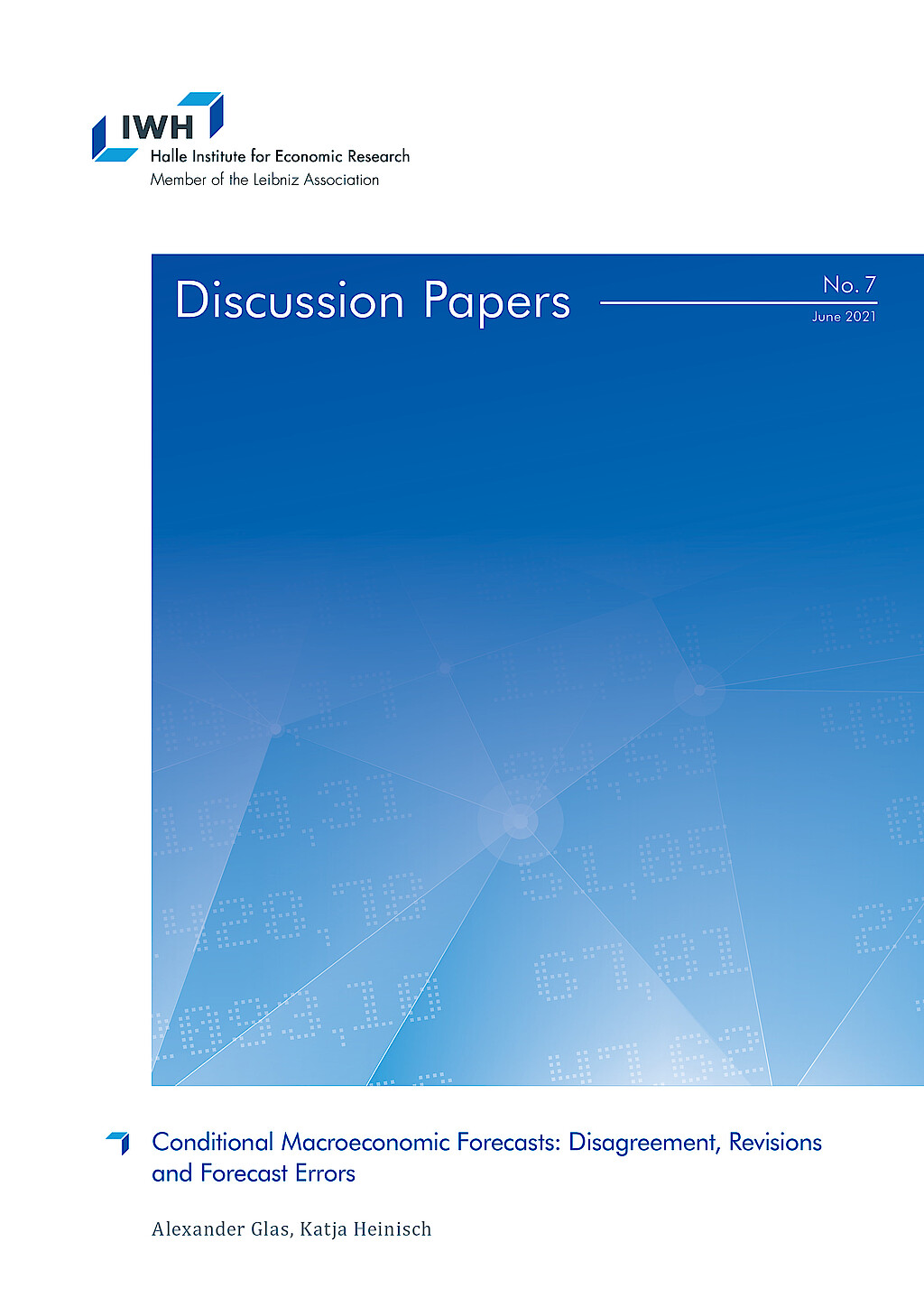
Assumption Errors and Forecast Accuracy: A Partial Linear Instrumental Variable and Double Machine Learning Approach
in: IWH Discussion Papers, Nr. 6, 2025
Abstract
<p>Accurate macroeconomic forecasts are essential for effective policy decisions, yet their precision depends on the accuracy of the underlying assumptions. This paper examines the extent to which assumption errors affect forecast accuracy, introducing the average squared assumption error (ASAE) as a valid instrument to address endogeneity. Using double/debiased machine learning (DML) techniques and partial linear instrumental variable (PLIV) models, we analyze GDP growth forecasts for Germany, conditioning on key exogenous variables such as oil price, exchange rate, and world trade. We find that traditional ordinary least squares (OLS) techniques systematically underestimate the influence of assumption errors, particularly with respect to world trade, while DML effectively mitigates endogeneity, reduces multicollinearity, and captures nonlinearities in the data. However, the effect of oil price assumption errors on GDP forecast errors remains ambiguous. These results underscore the importance of advanced econometric tools to improve the evaluation of macroeconomic forecasts.</p>

Economic Sentiment: Disentangling Private Information from Public Knowledge
in: IWH Discussion Papers, Nr. 15, 2021
Abstract
This paper addresses a general problem with the use of surveys as source of information about the state of an economy: Answers to surveys are highly dependent on information that is publicly available, while only additional information that is not already publicly known has the potential to improve a professional forecast. We propose a simple procedure to disentangle the private information of agents from knowledge that is already publicly known for surveys that ask for general as well as for private prospects. Our results reveal the potential of our proposed technique for the usage of European Commissions‘ consumer surveys for economic forecasting for Germany.

Conditional Macroeconomic Forecasts: Disagreement, Revisions and Forecast Errors
in: IWH Discussion Papers, Nr. 7, 2021
Abstract
Using data from the European Central Bank‘s Survey of Professional Forecasters, we analyse the role of ex-ante conditioning variables for macroeconomic forecasts. In particular, we test to which extent the heterogeneity, updating and ex-post performance of predictions for inflation, real GDP growth and the unemployment rate are related to assumptions about future oil prices, exchange rates, interest rates and wage growth. Our findings indicate that inflation forecasts are closely associated with oil price expectations, whereas expected interest rates are used primarily to predict output growth and unemployment. Expectations about exchange rates and wage growth also matter for macroeconomic forecasts, albeit less so than oil prices and interest rates. We show that survey participants can considerably improve forecast accuracy for macroeconomic outcomes by reducing prediction errors for external conditions. Our results contribute to a better understanding of the expectation formation process of experts.



